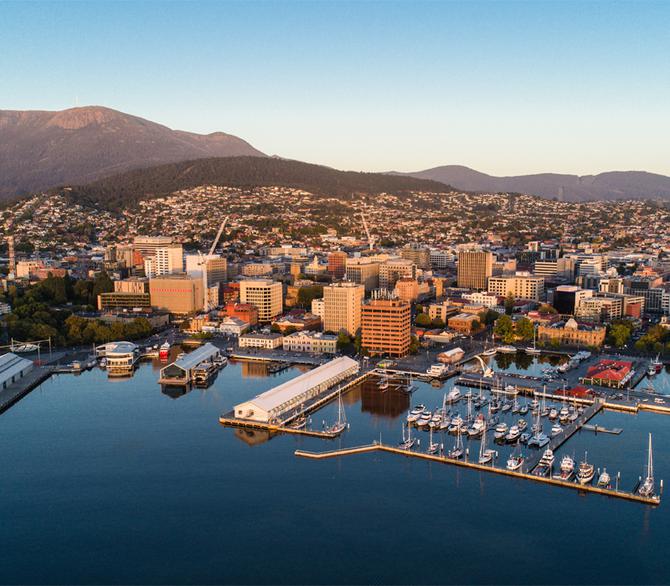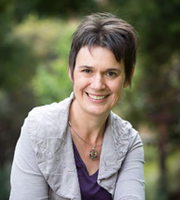Hobart has a special role in determining how Australia relates to Antarctica. The city is already home to the largest community of Antarctic scientists in the world. Now a national research project is exploring how language and art can help us better understand and protect Antarctica.
Antarctic Cities is an Australian Research Council Linkage project led by Professor Juan Francisco Salazar from Western Sydney University, in a partnership with the University of Tasmania, the City of Hobart, Antarctic Tasmania, and partners in New Zealand and Chile.
The project focuses on three of the five gateway cities to Antarctica: Christchurch, Punta Arena and Hobart (the other two are Cape Town and Ushuaia).

"Hobart's relationship with Antarctica goes well beyond the city's role as a base for scientific research," says Associate Professor Elizabeth Leane, who leads the University of Tasmania's contribution to Antarctic Cites.
"Antarctica's future depends on attitudes towards the continent, which are influenced by the way it's depicted. Climate change has shown us that science alone can't change the world—only public opinion can force governments to act," says Professor Leane, a Rhodes scholar with qualifications in science and the humanities.
"We want the cities to see themselves geographically as a southern rim rather than individual, far-flung ports handling traffic from the north and for citizens to engage with and act as custodians of this place (Antarctica) they are near neighbours with," she says.
"We want to show the Antarctic not just as a natural or scientific place but as a social and cultural place too.
"Literature is one of the best ways to capture hearts and minds. Many people will never travel to Antarctica themselves, so it's important to consider how texts represent Antarctica, and how they impact the way we think about it—a compelling narrative has the power to capture imaginations, informing the public of what they stand to lose, and inspiring them to act."
Also:
- Improving literacy through literature. Discussion of literature improves communication skills and enhances cultural literacy. The University has developed a program to improve transition to university, called 'Teaching of English in Tasmania Community of Practice'. It was created in 2013 with the support of secondary school English teachers, and its findings were incorporated in a national discussion paper. The University also contributed to 'The Pocket Instructor: Literature,' which is used by universities and high school teachers and was published by Princeton University Press in 2015.
- Environmental literacy: Professor Elizabeth Lester has helped communicators, scientists, and people from industry and government add a social sciences perspective to the study of Tasmania's environment. She organised symposia in 2015 and 2016 emerging from ARC-funded research projects on the role of leadership in building environmental concern and how transnational media activism impacts trade and conservation.
Interested in conducting your own research? Apply now to become a research student.
Interested in partnering with the University of Tasmania? Find out more here.
